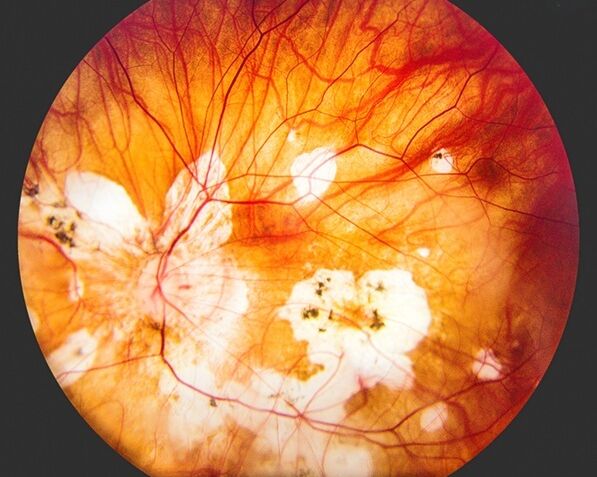Genomics England announces list of rare conditions to be included in world-leading research study

Today (2 October 2023), Genomics England have published an initial list of over 200 rare conditions that will be looked for as part of its world-leading Generation Study, which aims to start in NHS hospitals in late 2023.
The Generation Study is an NHS-embedded research study which aims to understand whether sequencing babies’ genomes can help to discover rare genetic conditions earlier. It aims to look at the DNA of over 100,000 babies and gather evidence to consider whether whole genome sequencing could be rolled out as part of a future newborn screening programme.
The initial list of 223 individual conditions caused by genetic changes in over 500 different genes was decided in collaboration with NHS experts and based on 4 key principles developed by Genomics England following a period of extensive consultation with scientists, healthcare professionals, people living with rare conditions and the public.
Read more about the four key principles and how we selected them.
Genomics England reviewed over 900 genes and associated conditions against these principles. The published list only includes conditions that usually appear in the first 5 years of life and can be improved if caught early by a treatment or intervention available through NHS England.
One condition included on the list is Severe Combined Immunodeficiency (SCID). About 14 babies a year are born with SCID and without treatment, babies usually die before they are a year old. This condition means that the baby’s immune system does not work properly, so infections can be dangerous and even life-threatening. If we diagnose the condition earlier, babies can be protected from catching infections and receive a bone marrow transplant which can ‘cure’ them by replacing their faulty immune system with a healthy one.
Another condition is biotinidase deficiency. Babies with biotinidase deficiency are unable to recycle biotin – a vitamin that is important for growth and development. Without treatment, children can have delayed development, seizures and problems with hearing and vision. It can be treated with a simple biotin supplement and when started early, most babies will not get any symptoms.
It is estimated that the study will identify suspected diagnoses for 500-1,000 out of the 100,000 babies who take part, providing them with earlier access to testing and treatment.
The initial list published today may be subject to further change during the study with conditions being added or removed in response to emerging research and evidence. Any changes made will be highlighted in an amended published list.
Genomics England plan to consult further on whether any additional conditions could potentially be looked for in the future as part of this study. They will publicise when and how this process will take place in early 2024.
Thousands of children are born in the UK every year with a treatable rare condition that could be detected using genome sequencing. For many of these illnesses, early and effective intervention is crucial for helping these children live healthier lives.
The current NHS newborn blood spot test carried out as part of newborn screening is used to detect nine rare and serious health conditions in babies, including sickle cell disease and cystic fibrosis. However, screening a baby’s entire genome – all their DNA – alongside the current heel prick could detect many more rare, treatable conditions in their first years of life.
We’ve taken a cautious approach to the study, including our approach to choosing conditions, to make sure our processes work and families receive safe and effective care.
We see this announcement today as the start of a journey. We’ll continue to revisit both the principles and the list of conditions to make sure we are keeping up with emerging evidence, advancements in genomics and treatment for rare conditions, as well as continuing to engage with the public, specialists and families with rare conditions.”
Amanda Pichini
Clinical Lead for Genetic Counselling at Genomics England
Genomics is revolutionising the way we deliver healthcare – if we can detect treatable conditions earlier then we can improve people’s lives and get potentially lifesaving treatment to them faster.
This list shows over 200 rare conditions will be included in the ground-breaking Generation Study and, as part of its careful and considered approach, Genomics England will continue to engage with stakeholders and assess emerging research in this area.
Investing in cutting edge research such as this will ensure the NHS continues to remain at the forefront of research to improve care for patients – especially children who are living with treatable rare conditions.”
Will Quince
Health Minister
As part of our commitment to provide a world-leading genomic medicine service for patients, we will be supporting this study by recruiting 100,000 babies and providing care and support for those found to have a rare condition. Earlier identification of rare conditions and treatment will give babies the best possible start in life.”
Professor Dame Sue Hill
NHS England’s Chief Scientific Officer and Senior Responsible Officer for Genomics
This high-powered research study will teach us a great deal about genomics as a newborn screening tool and about how best to deliver newborn screening for rare conditions in the future. The first iteration of the list of conditions balances ambition with pragmatism, and brings a new set of conditions into the scope of newborn screening for the first time with all the potential benefits that early identification can bring to the families affected.
We look forward to working with Genomics England to ensure the voice of people living with rare conditions feeds into the further development of this study.”
Nick Meade
Director of Policy, Genetic Alliance UK
The Generation Study is committed to designing its research project together with parents and patients. The team listened to the public as it developed its principles for its condition list which is aiming to find the 9 children born each day in the UK with a rare, treatable genetic condition.
The list of 200 conditions is a starting point for the ground-breaking study. It will continue to work closely with rare condition communities and organisations to continually review and assess knowledge and research to ensure equitable access to supported treatment pathways in the NHS, and improved outcomes for babies born with rare conditions.”
Rebecca Middleton
Vice Chair for Rare Conditions of the Participant Panel
Further information
- To find out more about the Generation Study visit our webpage.
- Hear Dr David Bick, Principal Clinician for the Newborn Genomes Programme at Genomics England, discuss how we’ve chosen conditions on our G Word Podcast.


